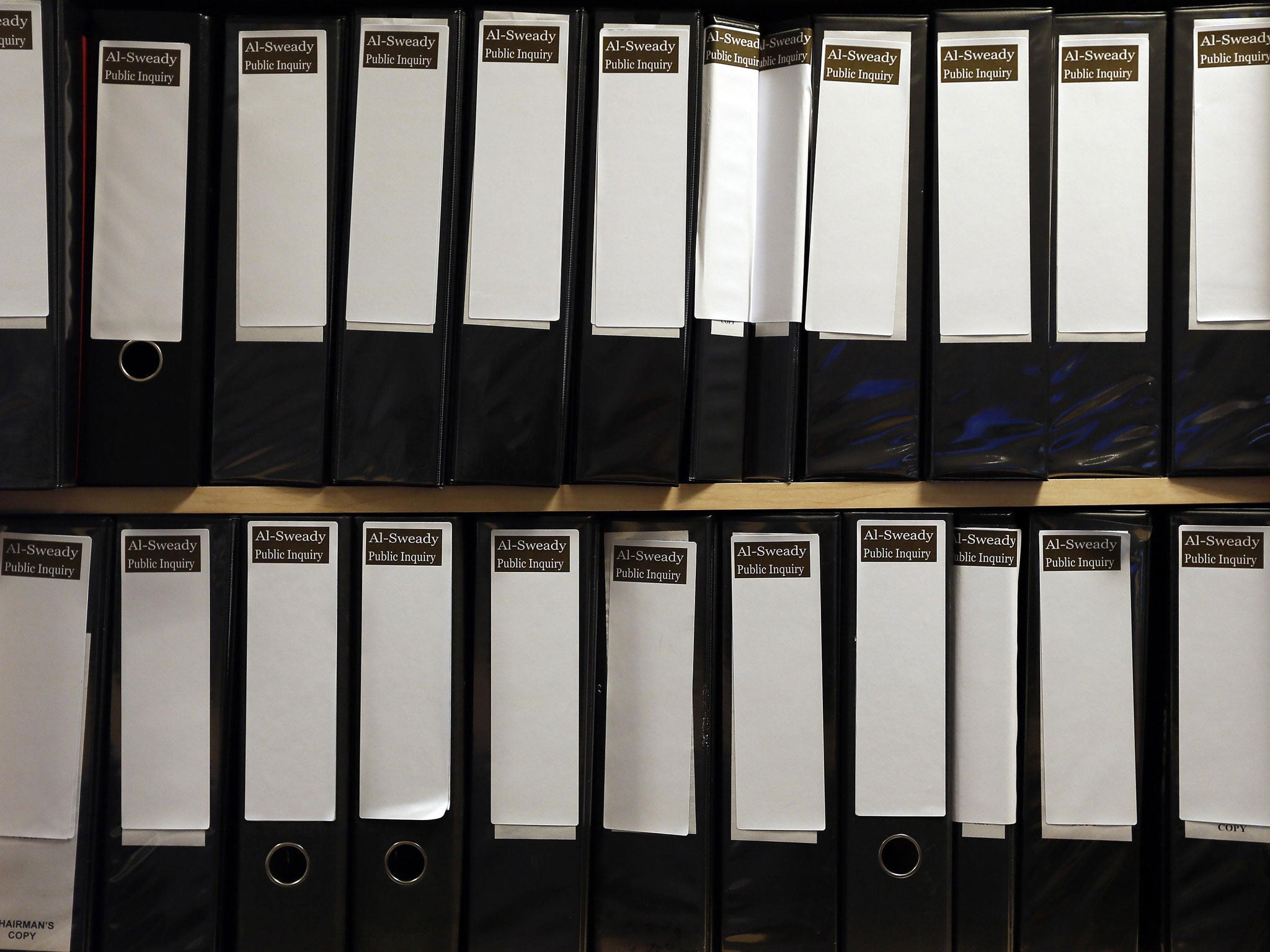High Court calls for new system to investigate claims of abuse by British soldiers on Iraqis
IHAT is found to be failing to meet UK obligations under the European Convention of Human Rights

Your support helps us to tell the story
From reproductive rights to climate change to Big Tech, The Independent is on the ground when the story is developing. Whether it's investigating the financials of Elon Musk's pro-Trump PAC or producing our latest documentary, 'The A Word', which shines a light on the American women fighting for reproductive rights, we know how important it is to parse out the facts from the messaging.
At such a critical moment in US history, we need reporters on the ground. Your donation allows us to keep sending journalists to speak to both sides of the story.
The Independent is trusted by Americans across the entire political spectrum. And unlike many other quality news outlets, we choose not to lock Americans out of our reporting and analysis with paywalls. We believe quality journalism should be available to everyone, paid for by those who can afford it.
Your support makes all the difference.Investigations into allegations of abuse and murder of Iraqis by British troops are legally flawed and need to be replaced by a new system, senior judges have said.
In a blow to the Ministry of Defence, the High Court said the Iraq Historic Allegations Team (IHAT), which is currently examining hundreds of allegations, was failing to meet the UK's obligations under Article Two of the European Convention on Human Rights (ECHR) to investigate suspicious deaths involving the state.
“A new approach is required,” said Sir John Thomas, president of the Queen's Bench Division, calling for inquest style smaller inquiries into dozens of individual cases.
The military has staunchly defended allegations that there may be as many as 150-160 cases involving deaths, as well as 700-800 involving mistreatment of civilians.
The claims include allegations that women, children and the elderly were among the victims when soldiers went in search of individuals to detain and interrogate following the invasion. There are also claims that British interrogators were guilty of unlawful killings as well as torture in British-controlled detention facilities between 2003 and 2009.
“The precise numbers that require investigation will be determined by decisions as to the scope of the application of the ECHR to the activities undertaken by the British armed forces in Iraq,” the judges said.
The ruling is a partial victory for 180 Iraqi civilians, including relatives of the dead, who challenged the IHAT arrangements, claiming it was too closely associated with the military and lacked independence.
The High Court found that IHAT was independent and carried out its duties with competence and integrity. It also rejected a call for a new full-scale inquiry.
The judges said the claims included "allegations of the most serious kind involving murder, manslaughter, the wilful infliction of serious bodily injury, sexual indignities, cruel and inhuman and degrading treatment and large-scale violation of international humanitarian law".
Some of the incidents had been the subject of criminal prosecutions, "and more may be", they added, pointing out that this had led to a massive legal bill.
The only public inquiry so far completed related to Baha Mousa, an Iraqi who died in British Army custody in 2003, which had cost £25 million. The bill for a second, the ongoing Al-Sweady inquiry, currently stands at £17 million with the hearings expected to last almost a year.
"The other investigations established by the Secretary of State are costing more than £7.5m a year."
The judges gave the Ministry of Defence six weeks to state what was happening in relation to certain cases - "in particular whether more prosecutions are to be brought".
A further High Court hearing is to place after 21 June to discuss the next steps to be taken in the litigation.
Phil Shiner, of Public Interest Lawyers, who represented the Iraqis, said of the ruling: "It has found that the Ministry of Defence have not complied with international and domestic law requiring there to be proper public scrutiny of these cases and the systemic issues arising from them.
“My clients welcome the public inquisitorial process that will now follow. I trust that the various and troubling systemic issues emerging from these cases will lead to further reforms following the Baha Mousa Inquiry report of September 2011.”
A Ministry of Defence spokesman said: "We welcome the court's finding that IHAT is independent and carries out its duties with competence and integrity.
“We are also pleased that the court has agreed that the Secretary of State was justified in concluding that a single comprehensive public inquiry into allegations of abuse in Iraq should not be established. This would have led to unnecessary expense and unacceptable delay.
"The IHAT continues to make progress in its task of investigating allegations which have been made against British troops serving in Iraq."
Join our commenting forum
Join thought-provoking conversations, follow other Independent readers and see their replies
Comments